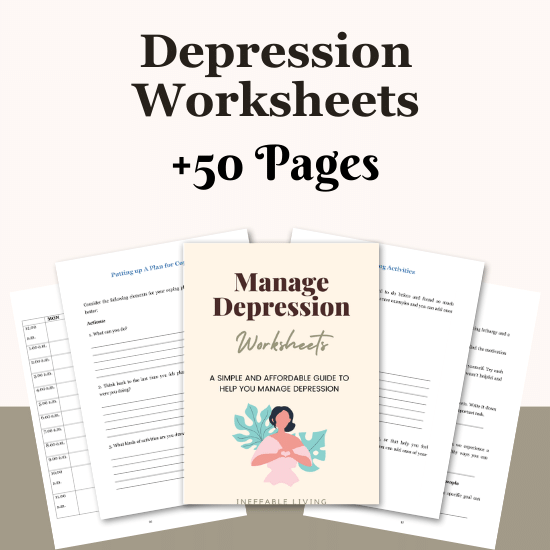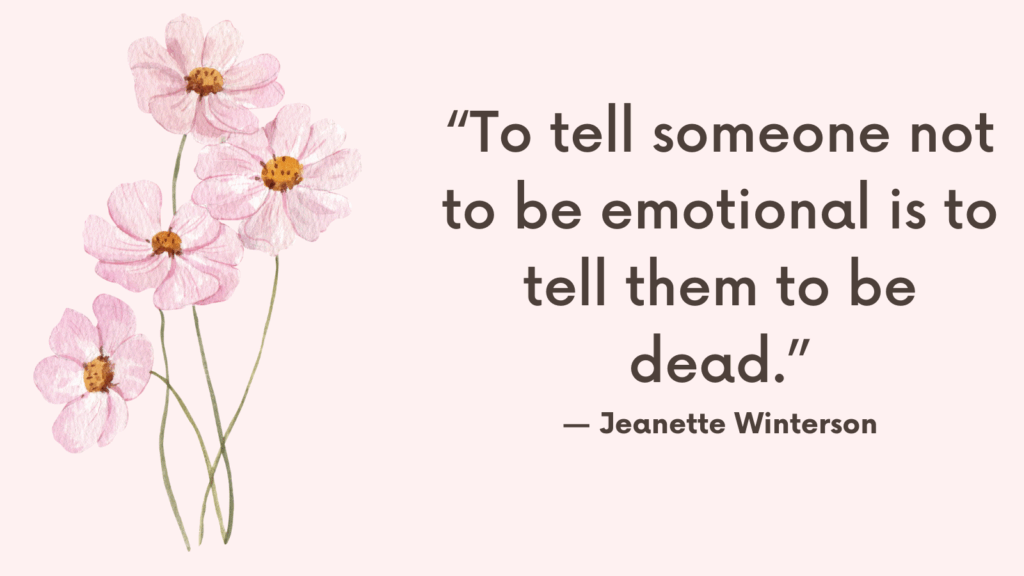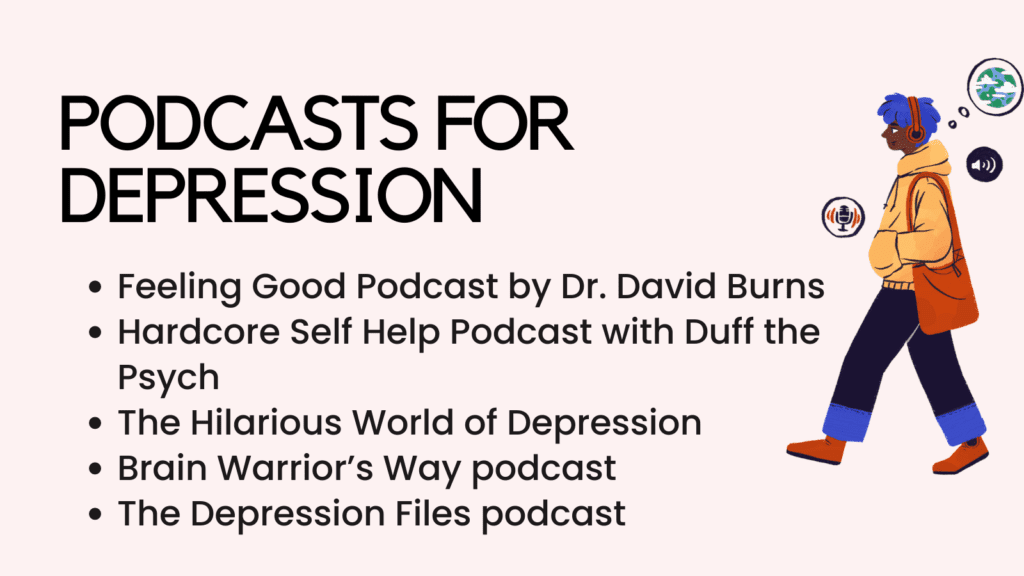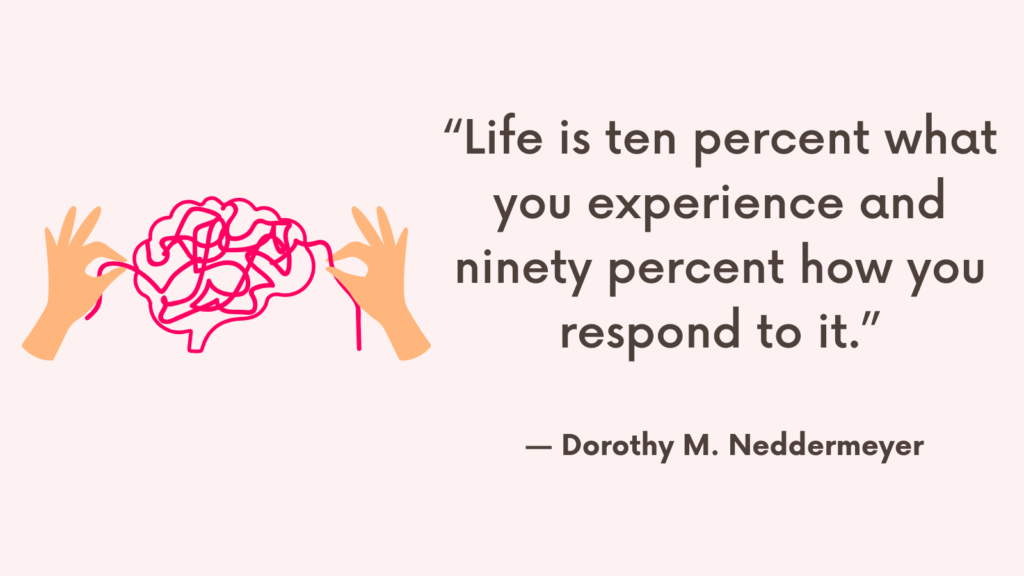Explaining depression to someone who has never experienced it can be frustrating, painful, and lonely. But with the right language and clarity, you can help them understand that depression isn’t just “sadness” or “laziness”—it’s a real, often invisible, struggle that affects every part of your life.
Why It’s So Hard to Explain Depression
1. It’s an Invisible Illness – There are no visible symptoms, so others can’t “see” what you’re going through, making it harder to validate or describe.
2. Words Fall Short – Depression is a complex mix of emotional, physical, and mental symptoms that don’t always translate well into language.
3. Fear of Judgment – Many people hesitate to talk about depression out of fear they’ll be dismissed, misunderstood, or seen as weak.
4. It Changes How You Think – Depression distorts your thoughts and perception, which can make you question your own feelings or struggle to put them into words.
Related: Top 10 Reasons You’re Feeling Unfulfilled In Life
5. It’s Not Just Sadness – People often expect depression to look like sadness, but it includes numbness, emptiness, irritability, and exhaustion — which are harder to explain.
6. Shame and Guilt – Depression often brings self-blame or embarrassment, making it painful to open up or admit you’re struggling.
7. It Feels Personal and Unique – Everyone experiences depression differently, so there’s no one way to explain it that fully captures the experience.
8. Talking Takes Energy – Depression drains mental and emotional energy, so even forming sentences to explain how you feel can feel overwhelming.
How to Explain Depression to Someone Who Doesn’t Get It?
1. Start With a Clear, Grounded Definition
Say:
“Depression is a mental health condition that affects how I think, feel, and function. It’s not about being sad—it’s like my brain gets stuck in shutdown mode, even when nothing is obviously wrong.”
2. Use Physical Analogies
Comparing depression to a physical illness helps make it more relatable:
“It’s like trying to walk with a broken leg, except the pain is in your energy, emotions, and thoughts.”
Or: “Imagine being buried under a weighted blanket and told to run a marathon.”
3. Explain the Difference Between Sadness and Depression
Say:
“Sadness is usually linked to something specific and temporary. Depression often has no clear cause, lasts much longer, and doesn’t go away just because something good happens.”
Related: High Functioning Depression Test (+Effective 3-Step Guide To Overcome High Functioning Depression)
4. Share How It Feels Internally
Use simple language:
“I feel numb, heavy, and detached. Like I’m watching life from behind glass.”
Or: “It’s like my motivation, joy, and interest in everything have been turned down to zero.”
5. Describe the Daily Impact
Offer concrete examples:
“Some days, brushing my teeth or answering a text feels like climbing a mountain. My brain tells me it’s pointless, even if I logically know it’s not.”
6. Be Honest About What Helps (and What Doesn’t)
Say:
“Encouragement is helpful when it’s gentle—not when it’s ‘just snap out of it.’ What helps most is patience, presence, and understanding when I’m quiet or withdrawn.”
Related: The Silent Struggle: How to Manage Depression-Related Anger?
7. Set Boundaries With Empathy
If someone is invalidating, calmly say:
“I know this might be hard to understand, but it’s real for me. I’m not asking you to fix it—just to believe me.”
8. Invite Them Into Your World
Suggest a way to learn more:
“If you want to understand more, this article/book/video explains it really well.”
Or: “Would you be open to hearing what a tough day feels like for me?”
9. Accept That Some People May Not Fully Get It
Even with the best explanation, some people won’t understand. That’s okay. Your job isn’t to convince—your job is to protect your truth. Their lack of understanding doesn’t make your experience less valid.
Related: What is Anxious Depression?
10. Speak From Courage, Not Shame
Say:
“I’m not broken. I’m living with something hard—and doing my best to keep going. That deserves compassion, not correction.”
How to Use Analogies That Make Depression Relatable?
Analogies are powerful tools for explaining depression—especially to people who haven’t experienced it. The right analogy turns the invisible into something visual, emotional, and understandable.
1. Physical Illness Analogies
“It’s like the flu of the mind.”
Just as the flu drains your body and makes you unable to function normally, depression drains your energy, motivation, and clarity—even if others can’t see it.
“It’s like trying to run on a broken leg.”
You could force yourself to move, but it hurts, and you need support to heal—not just pressure to keep going.
2. Weather-Based Analogies
“It’s like living under a permanent grey sky.”
No matter how good the moment is, everything feels muted, heavy, and cold. There’s no sunlight, even when you know it’s supposed to be there.
“It’s like standing in a storm no one else can see.”
From the outside, everything looks fine. But inside, it’s chaos, noise, and survival mode every day.
3. Technology Analogies
“It’s like your brain is running 50 tabs at once, but nothing will load.”
You’re overwhelmed and mentally frozen—no matter how hard you try to focus.
“It’s like a phone with 5% battery that keeps draining, even while it’s plugged in.”
Rest doesn’t recharge you. Even small tasks feel like too much.
Related: “I Don’t Feel Like Doing Anything”—Now What?
4. Weight or Gravity Analogies
“It’s like carrying an invisible backpack filled with rocks.”
You move slower, tire faster, and even standing feels like work—but no one else sees the load.
“It’s like sinking in quicksand—struggling makes it worse, and staying still feels like the only option.”
This helps explain the paralysis that comes with depression and why action isn’t always possible.
5. Isolation Analogies
“It’s like being behind soundproof glass.”
You see people talking, laughing, living—but you can’t connect, no matter how hard you try.
“It’s like being homesick for a version of yourself you can’t get back to.”
This captures the loss of identity and emotional distance depression creates within a person.
6. Everyday Experience Analogies
“It’s like trying to find your way in a room with the lights off.”
You’re fumbling, uncertain, and nothing feels familiar—even in your own life.
“It’s like walking through molasses.”
Everything—getting up, talking, thinking—takes five times the effort, and you move slowly, if at all.
7. Match the Analogy to the Listener
Use analogies that align with the other person’s world:
- For a parent: “It’s like trying to parent while wearing noise-canceling headphones and weights.”
- For a coach: “It’s like showing up to the game with no gear and no energy—but you still have to play.”
Related: How to Overcome Post-Vacation Depression?
Common Misconceptions People Hold About Depression
1. “Depression Is Just Sadness”
Truth: Depression involves more than feeling sad. It includes emotional numbness, hopelessness, fatigue, loss of interest in life, and cognitive changes that can last for weeks, months, or even years.
2. “You Can Snap Out of It”
Truth: Depression isn’t a choice or a mood you can shake off with willpower. It’s a medical condition that affects brain chemistry and functioning, and it requires care, support, and often treatment.
3. “People With Depression Always Look Sad”
Truth: Many people with depression smile, work, socialize, and appear “fine” while silently suffering. Smiling depression and high-functioning depression are real and often misunderstood.
4. “If You Have a Good Life, You Can’t Be Depressed”
Truth: Depression isn’t always caused by external circumstances. Someone can have loving relationships, a successful career, or financial security and still be battling internal despair or emptiness.
5. “Antidepressants Are a Crutch”
Truth: Medication is a legitimate and often life-saving treatment for depression. It helps correct imbalances in brain chemistry and can support healing alongside therapy and lifestyle changes.
6. “Talking About It Makes It Worse”
Truth: Open conversations about depression reduce shame and stigma. Bottling it up worsens the condition. Talking allows people to feel seen, supported, and understood.
7. “Depressed People Just Want Attention”
Truth: Depression isolates people. Most aren’t looking for attention—they’re seeking relief. Dismissing their pain as dramatics prevents them from getting help.
8. “Depression Means You’re Weak”
Truth: Depression has nothing to do with character or strength. Many people who appear strong on the outside are quietly carrying the weight of depression every day.
9. “Only Adults Get Depressed”
Truth: Children, teens, and elderly people can all experience depression. It may look different in each group, but it’s equally real and serious.
10. “It’s All in Your Head”
Truth: Depression affects the entire body—causing fatigue, appetite changes, sleep disturbances, and physical pain. It’s a whole-body condition with complex biological, psychological, and environmental roots.
11. “People With Depression Are Always Suicidal”
Truth: While suicidal thoughts can be a symptom, not everyone with depression experiences them. Depression exists on a spectrum, and each person’s experience is unique.
Related: Do I Have Seasonal Depression Quiz (+Top 12 Natural Ways To Boost Your Mood)

Conclusion
Helping someone understand depression starts with honest, grounded communication—but it’s sustained through boundaries, patience, and self-respect. Your experience is real, whether others fully get it or not.



